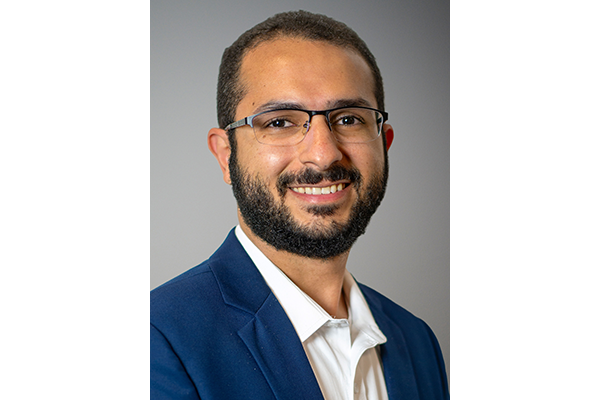Novel Approach to Wireless Ranging for UVs in GPS-Denied Environments

ECE Postdoctoral Research Associate Hussein Hussein’s research, “Passive Frequency Comb Generation at Radiofrequency for Ranging Applications,” was published in Nature Communications. This research marks a significant advancement in the field of wireless technology and localization methodologies.
By introducing quasi-Harmonic Tags (qHTs), Hussein and the research team have provided a novel solution to the challenges of ranging, particularly in GPS-denied environments. Hussein introduces quasi-Harmonic Tags (qHTs) as a novel approach to wireless ranging, particularly for unmanned vehicles (UVs) in GPS-denied environments. Traditional methods like GPS are ineffective indoors or underground, prompting the need for alternative localization technologies. Existing techniques like Light-Detection-and-Ranging (LIDAR) and ultrasound detection are power-intensive and complex.
Hussein’s method hinges on exploiting the inverse relationship between received power and distance. By analyzing the spacing between comb lines from qHTs, precise distance measurements are possible, even in environments with multipath interference, with which traditional methods struggle. The article proposes qHTs as passive RF tags that generate frequency combs passively, offering a solution to the limitations of conventional passive tags. These combs, generated through nonlinear interactions, allow for accurate ranging even in environments prone to multipath interference. The method leverages the inverse relationship between received power and distance, enabling accurate distance measurement by analyzing the comb line spacing.
Experimental validation demonstrates the efficacy of qHTs, showcasing their ability to measure distances with an accuracy of ±16 cm up to 13 meters away from the interrogating node. The technology offers promising applications in various fields beyond ranging, including timing, computing, and sensing.
Hussein is working with ECE Associate Professor Cristian Cassella, who co-authored the paper in collaboration with Andrea Alù, a Distinguished Professor and Einstein Professor of Physics at the CUNY Graduate Center, and Professor of Electrical Engineering at The City College of New York.